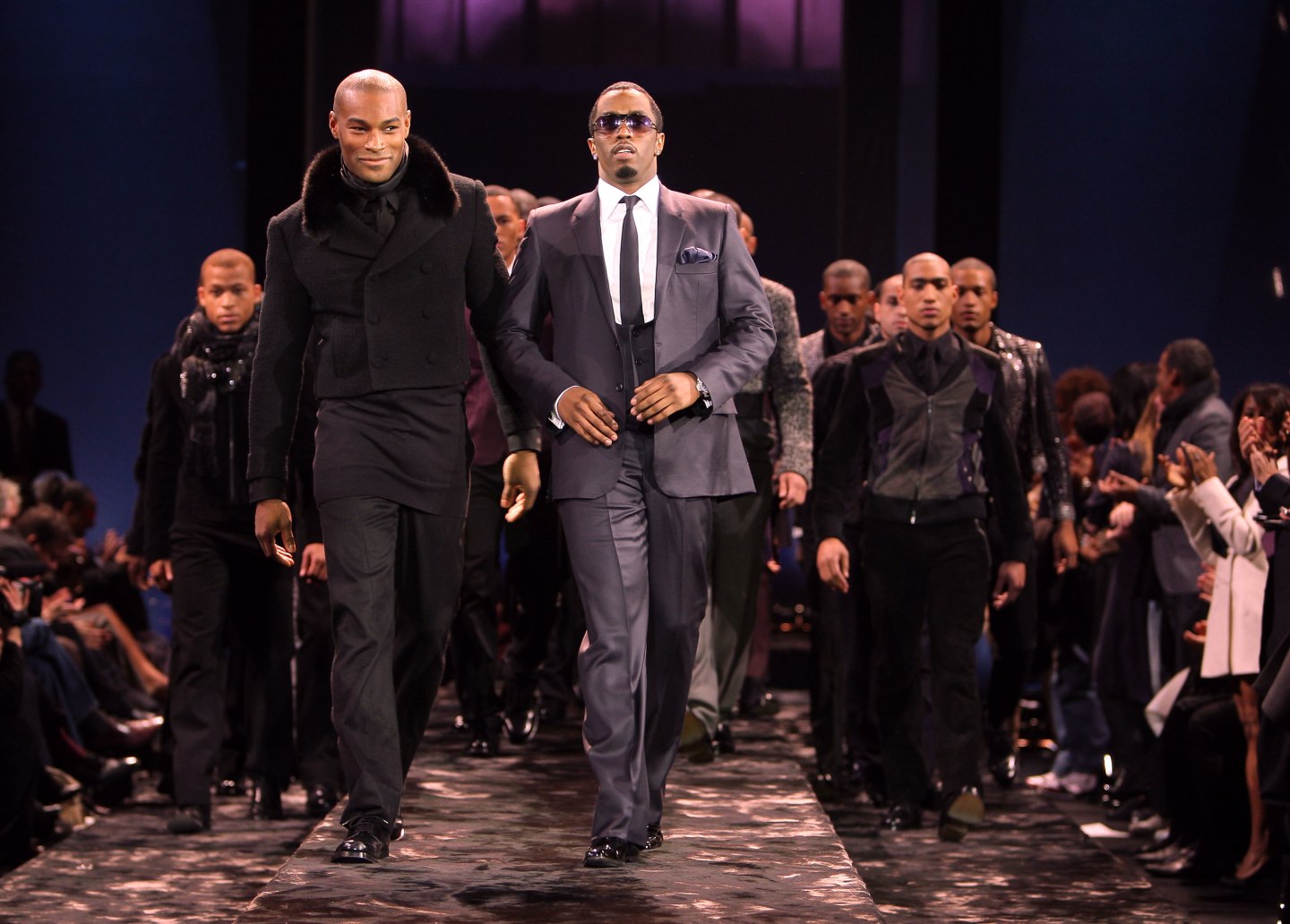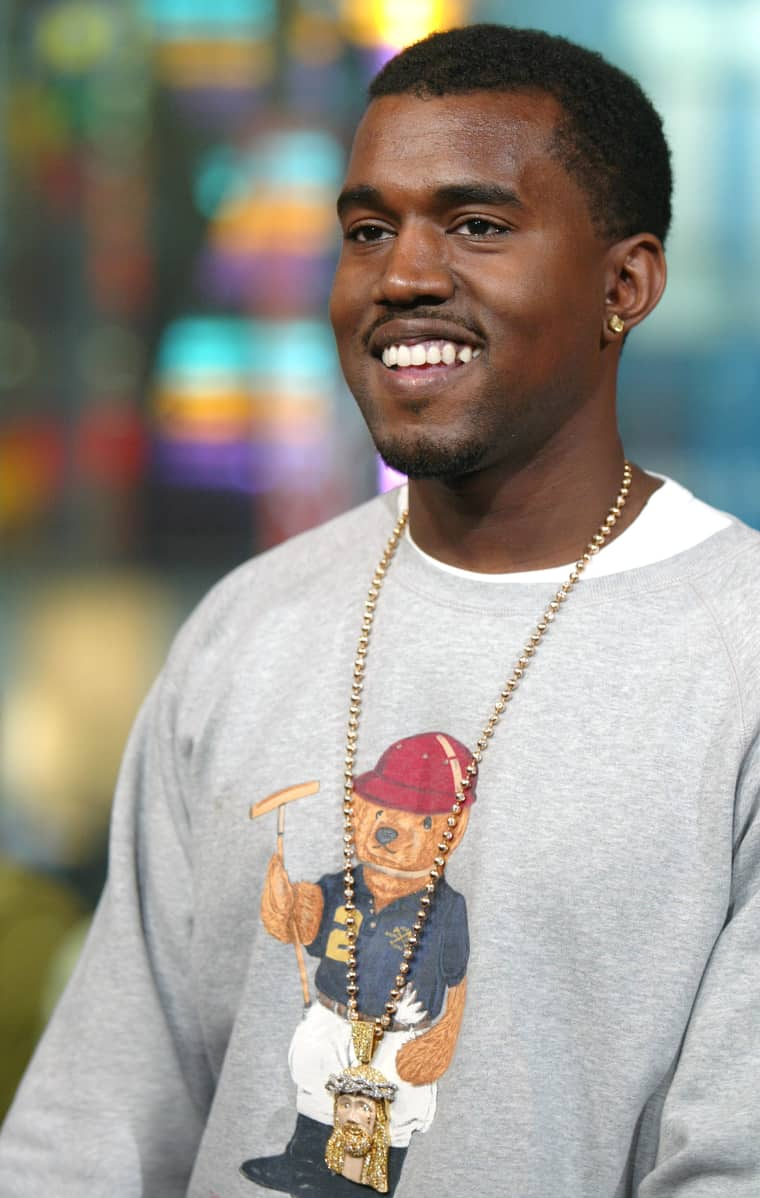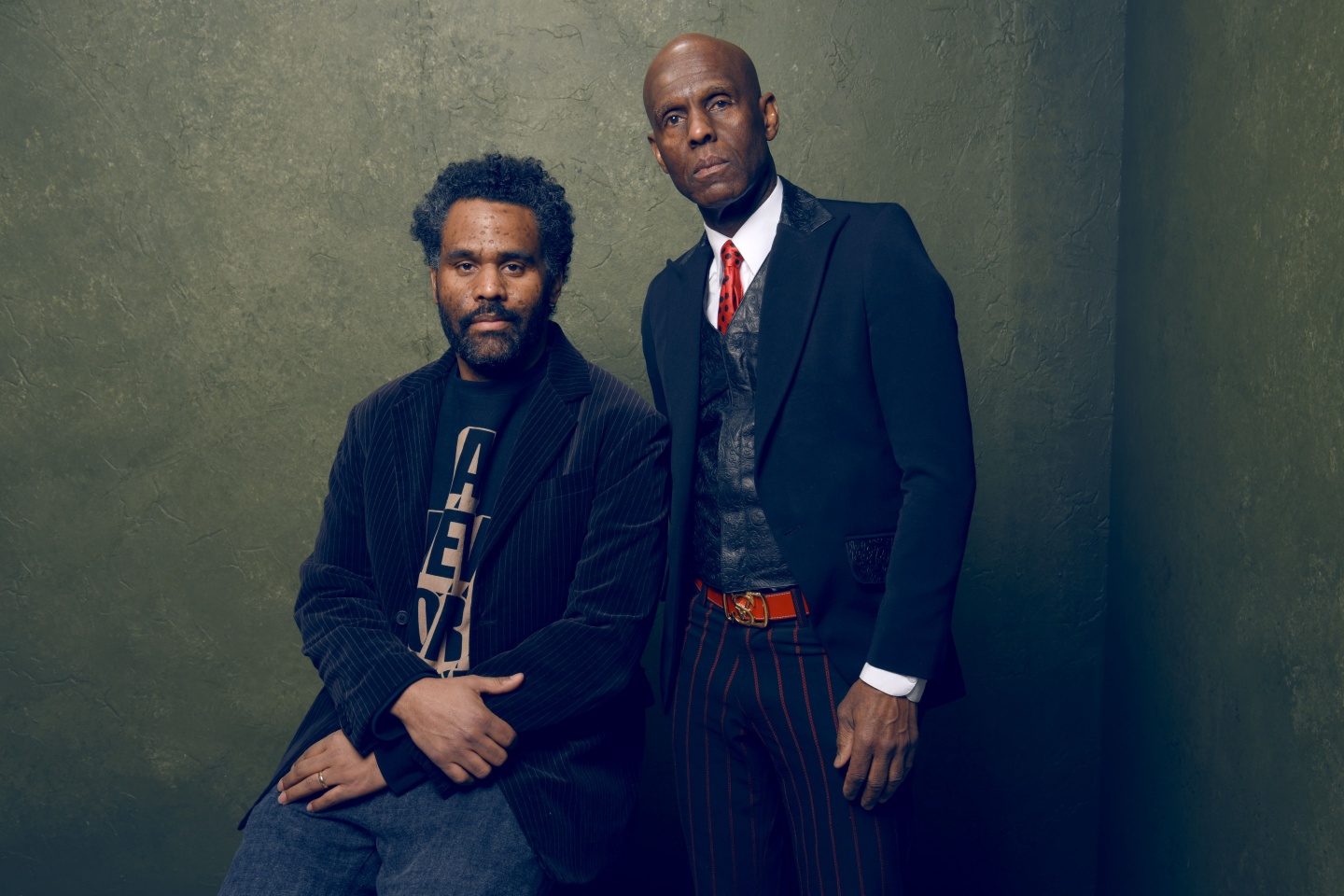For a New York native and lifetime hip-hop fan, the NYC premiere of Sacha Jenkins' documentary Fresh Dressed was star-studded in a personal, nostalgic way. Though the A-list crowd boasted notables like Nas and Pusha T, it was OG streetwear legends like Daymond John of FUBU, April Walker of Walker Wear, Harlem couturier Dapper Dan, and Polo-loving Thirstin’ Howl III of the Lo-life crew that truly elicited star-struck gazes. Though most of these names might not be familiar in American fashion's lexicon, Jenkins' in-depth documentary, about the evolution of hip-hop’s love of style, proves that they should be.
By way of vintage clips and in-depth interviews, Fresh Dressed takes us through the timeline of what fashion has meant not just to hip-hop music but to the people that it represents. Jenkins—the founding member of seminal rap magazine Ego Trip and current creative director of music and culture publication Mass Appeal—is well-read in the history of how street cultures trickle into mainstream society. The documentary’s lens does not attempt to categorize or judge that identity but rather explore all the ways that it manifests itself in the name of freedom and self-expression for the real creators: the disenfranchised youth. The FADER spoke with Jenkins about hip-hop’s intimate relationship with fashion.
Hip-hop's love affair with fashion is talked about a lot but the way that you approached the story and the things that you covered—from slavery to Lil Richard to the gangs of the South Bronx to Dapper Dan—were explored in a linear narrative that stretched further than just the genre of music itself. Why did you choose to tell the story from this angle?
As someone who's been writing about the culture for a long time, and before that as someone who actually grew up with the culture, I knew that there were a lot of ways into the hip-hop story and a lot of folks had gone into [it] but fashion is one of the most important facets of it. You couldn't be a rapper with much respect if you were considered a bum in terms of the way you dressed. I also remembered how important it was to look a particular way when we were growing up. Of course, [when you’re young] there's always peer pressure, you wanna fit in but I know as someone who grew up in the inner city that fashion means way more to us than it does to a lot of people. I felt like this film was a great way to tell that story.
 Diddy and model Tyson Beckford close out Sean John's fall 2008 runway show.
Scott Gries / Getty Images
Diddy and model Tyson Beckford close out Sean John's fall 2008 runway show.
Scott Gries / Getty Images
The thing that really makes Fresh Dressed stand out is that you cover not just what fashion meant to black people as consumers, but how it eventually drove rappers and hip-hop lovers to become designers in our own right. You talk about Sean John in the movie and how he was basing his clothing off of not just the streets but high fashion. What was it about hip-hop that allowed so many black males to jump into the field and feel empowered to take it further?
I think music has a heavy hand in creating all these opportunities. You have people who are fans of '60s music, psychedelic music, hippies and that goes hand-in-hand with the fashion. When you think about punk rock, you're not just thinking about what you hear, you’re thinking about the visuals and the way people dressed. And while you can’t necessarily come off the street and be a rapper, anyone can wear something! So the energy of fashion makes a lot more things possible in terms of people feeling like, a) they can participate, and b) like they're a part of something bigger than them.
The film’s timeline starts with Little Richard as a forerunner of merging fashion and music. Most storytellers wouldn’t choose to start there when they talk about hip-hop fashion, but the movie brings up images of early hip-hop fashion where the style was outlandish and non-gender conforming. For example, the picture of Melle Mel in the biker shorts and cowboy boots, which if he wore now in 2015 would cause everyone to freak out. Historically, hip-hop artist always dressed their own way. Do you feel that it’s come back full circle in 2015?
Early on, when Melle Mel and these guys were dressing extremely outlandishly, they were really aping what was going on in mainstream rock & roll or show biz culture. They had to wear something that was completely over the top to feel like they were George Clinton and a part of a legitimate movement and scene. At that point, everyone was writing hip-hop off like [it] wasn’t gonna be shit. Other guys like the Cold Crush brothers wore suits! And they were saying, “Hey, we're performers! We're from the projects too, but we're getting money, wearing suits and you're gonna spend a premium to see us and you should because look at us you know, we're the Rolls Royce of this shit!” Then Run DMC comes along and says, “We're gonna dress like kids in the hood and they go to park jams and parties.” Hip-hop was still finding its identity but I think Run DMC helped to establish and spread that identity which is [that it] was made by the youth and was a real reflection of [them]. It was a reflection of wanting—being a rock star and buying into that. When you couple that with the stuff [Run DMC did] with rock groups like Aerosmith, [they were] a lightning rod for spreading what the essence of hip-hop was and what the essence of hip-hop fashion is, which is what young kids think is cool. Not what a zany rockstar might wear to be risque and over the top.
 Kanye West at MTV TRL Live in 2004.
Scott Gries / Getty Images
Kanye West at MTV TRL Live in 2004.
Scott Gries / Getty Images
 Kanye West on The Yeezus Tour, 2014.
Bradley Kanaris / Stringer / Getty Images
Kanye West on The Yeezus Tour, 2014.
Bradley Kanaris / Stringer / Getty Images
Do you feel like the reason we're seeing rappers dress in tights jeans and dresses now is because they are the rock stars of this time and the envelope is theirs to push?
That’s why I felt it was important to do the film that I did. Because if you look at where the fashion has come from and where it's gone, it’s a reflection of where hip-hop has gone. Kanye, Pharrell and Jay Z: look at the world that they're stepping into now. Jay Z is not in Marcy Projects anymore. He has a whole lot of money and opportunity. It’s just like with rock & roll, which was initially considered this scary music. And what happens in America? Once America says, okay, this is something we make in America, and figures out how to make money off it, then all of a sudden rock & roll is this white phenomenon. It’s this commodity that is sold around the world. The same thing has happened with hip-hop, although primarily, right now at least, the majority of the stars are African-American. But they are the new rock stars and hip-hop is a commodity. America finally said, okay, it’s American music, [and now] exports it around the world and acknowledges it. So once you get that acknowledgement then things change.
As a creative director at Mass Appeal I work with a lot of young folk who are half my age and some are Caucasian. I ask them, “Hey do you like Black Sabbath? Do you like Led Zeppelin?" and they say, “I've heard of that stuff but nah, not really. I like DMX. My mom bought me my first cassette and it was DMX.” So you have a whole generation of white kids who grew up primarily on hip-hop. [Hip-hop] has a very strong transformative power. It has changed the way a lot of people think, and has brought a lot of people together, just like fashion.
That’s why I wanted to do this film: to tell the story of the innovation and creativity but also to show people that hip-hop and [its] fashion was a reaction to the environment and the climate. If you look at the South Bronx in 1970, you have this rise of gangs. Look at what their inspiration was: biker gangs, Hell's Angels. It was [about] what we're facing in society and how far we've gone and how far we've been held back.
If you were to do a follow up in five years, where do you think the next level for hip-hop fashion will be?
I don't wanna say the game is over but again the internet has changed the game completely. When I was growing up in New York, you could look at someone and tell if they were from Brooklyn, or Queens. While I was into hip-hop, I was also deeply involved in the graffiti scene and also into skateboarding and punk rock at a time when not many black kids were into it. So I’m well schooled on a lot of youth cultures. Now I'll see a black kid wearing a Black Flag shirt and a spiked belt and I have no idea where he's from. When I was wearing that stuff I was a part of the New York hardcore scene. I could tell based on how your Dr. Martens were laced or the color of your shoelace whether or not you were a racist skinhead. Nowadays, at least in the inner city, their references points are so broad you don't know where anyone's coming from.
I refer to fashion, particularly hip-hop fashion, as language and vocabulary. Because of the internet and the access that kids have, their fashion vocabulary is gonna expand exponentially. Where [is] hip-hop fashion gonna go in five years? I couldn't tell you. I’m not a fashion person. I'm more interested in why people wear what they wear as opposed to what they're wearing.
“Fashion is a reflection of creativity, identity, pride and dignity and that’s why in communities where people don’t have much, fashion means the world.”—Sacha Jenkins
As long as you feel good wearing what you wear that's cool, and I think what's different about hip-hop now—and something that kept being mentioned in the film by different people—is this notion of freedom. Some attitudes in the hip-hop community have changed a little bit. As it’s addressed in the film, people's feelings on homosexuality in hip-hop have changed and [that’s] reflected in the way people dress because, as Kanye says, "For years people thought I was gay because I liked fashion.” Those times have changed.
He [doesn’t] wear dresses but he wears kilts, which you know clearly doesn't mean you're a homosexual. Men have worn stuff like that since the beginning of time. By Kanye doing that, he expanded the vocabulary of fashion in the world of hip-hop to where, sure, not everyone is gonna wear what he's wearing but now there's greater awareness on the fact that it's from another culture and people dress this way. He is referencing that culture and is comfortable enough to wear it without the fear of being ostracized or physically attacked for it.
 Sacha Jenkins and Harlem's legendary designer Dapper Dan at Sundance Film Festival 2015.
Larry Busacca/Getty Images
Sacha Jenkins and Harlem's legendary designer Dapper Dan at Sundance Film Festival 2015.
Larry Busacca/Getty Images
There was a time when the only brands you knew in the hood were Versace or Gucci—the bigger fashion houses—but now kids are talking about more niche labels like Balmain and Givenchy. The knowledge of fashion's spectrum has spread so widely, and hip-hop is still controlling the fashion conversation in a really crazy way. Black youth culture is still being pumped into such a white institution at such a massive scale.
The industry is crashing but hip-hop still [has] a hand and influence in what’s going on. It goes back to the realities of life in America. If you're a person of color, if you can't own anything, if you don’t have the same social capital or access to the things that others have, all you have is yourself, your creativity, your pride, and your dignity. Fashion is a reflection of creativity, identity, pride and dignity and that's why in communities where people don’t have much, fashion means the world. These are the ideas that I wanted to communicate in the film. We talked about people getting stabbed for sneakers or people getting shot for their coats. Earlier in the film, we're in the South Bronx and we learn about young gang members dying over the colors of their jackets. We fast forward 40 years in the same neighborhoods and kids are dying for these winter coats that they can't afford. So I wanted the film to talk about the innovation, the creativity, the inspiration and how the culture has traveled the world. But I also wanted us to be able to examine ourselves and at least talk about some of the issues. Again, hip-hop is a reaction and a reflection of who we are and what we're going through and I think it’s really important to try to address some of the issues that we still face in these communities even today.
Fresh Dressed opens at The Angelika Film Center in New York today. Sacha Jenkins will be speaking at the 7pm screening on both opening Friday 6/26 and Saturday 6/27.